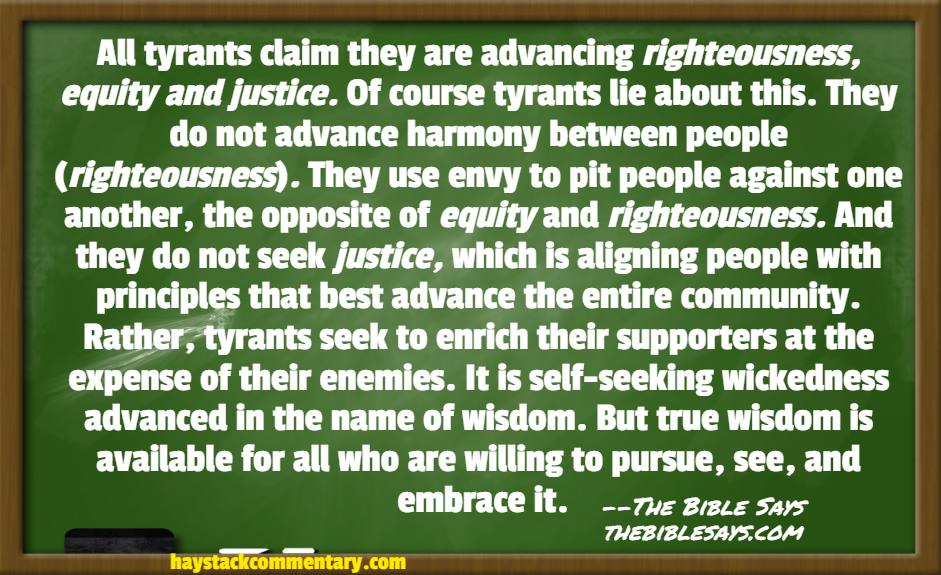Proverbs 2
|
Proverbs 2:1:
My son, if you receive my words, And treasure my commands within you, |

We should treat God's Word like treasure, as something precious. We should not treat it merely as something expensive but personally desired and used as our guide to life. Possessing it in this manner is within reach if we stretch ourselves or make sacrificial effort to have it. It is such a powerful tool that we should approach it as if it is the pearl of great price. Yet, this treasure is not something put in a safe-deposit vault and taken out only to look at on rare occasions. We are to seek it so that it can produce success and beneficial results in us. It is the most useful tool readily available to man to guide him in the most important area of life—his relationships with God and fellow man. -The Berean
|
|
Proverbs 2:2:
2 So that you incline your ear to wisdom, And apply your heart to understanding; |

Because wisdom begins as a gift, something external we need to receive, it is imperative for us to focus our attention and turn toward it. To pay attention to it. To listen with an intent to adopt.
Once we hear we need to progress to understanding. The understanding should become a part of us, seep into our heart. That is the prerequisite for those-who- would-be-wise, to steward what wisdom teaches. It is an application of the heart, meaning something we take into the fullness of ourselves. So that pursuing and applying understanding becomes an extension of who we are. It becomes a way of thinking and a way of life. This set of verses is not just a reinforcement of verse 1, but also a progression. The progression is that verse 1 says we need to receive, and verses 2-4 are suggesting that if reception is the necessary first step, we need to posture ourselves in a way to best receive. Making our ear attentive will help us hear and put us in the best position to receive. So Solomon is saying that if reception is vital, we do well to seek to be attentive. --The Bible Says |
|
Proverbs 2:3-5:
3 Yes, if you cry out for discernment, And lift up your voice for understanding, 4 If you seek her as silver, And search for her as for hidden treasures; 5 Then you will understand the fear of the Lord, And find the knowledge of God. |
Solomon said, "There's only one way to really know God and to know all that's revealed about God, and that's to make that the pursuit of your life. If you're looking for money; if you're looking for success; if you're looking for something else, you'll not really discover all that there is to know about God." But, he says, "My son, if you seek God like silver and search for God as if for hidden treasure, you'll find the knowledge of Him." God wants us to know Him. God wants us to pursue Him. |
|
Proverbs 2:6:
6 For the Lord gives wisdom; From His mouth come knowledge and understanding; |
The Lord Jehovah is the only and true Source of wisdom. The truth stated here is also met with in Daniel 2:21, "He giveth wisdom unto the wise, and knowledge to them that know understanding." He "giveth," or more properly, "will give" (יִתֵּן yitten, future of נָתַן, nathan), wisdom; but the connection requires us to understand that the assurance applies only to those who seek after it earnestly and truly (cf. James 1:5-7). The two coefficients to our obtaining wisdom are our efforts and God's assistance. Solomon may be adduced as s striking exemplification of this; he asked for "an understanding heart," and God graciously granted his request (see 1 Kings 3:9, 12). Out of his mouth (מִפִיו, mippiv); ex ore ejus; God is here spoken of anthropologically. He is the true Teacher. The meaning is that God communicates wisdom through the medium of his Word (Delitzsch. Pi.). The law proceeds from his mouth (Job 22:22). In the Book of Wisdom (7:25), "Wisdom is the breath of the power of God." His word is conveyed to us through men divinely inspired, and hence St. Peter (2 Peter 1:21) says that "holy men of old spake as they were moved by the Holy Ghost." -Pulpit Commentary
The Pulpit Commentary is a homiletic commentary on the Bible created during the nineteenth century under the direction of Rev. Joseph S. Exell and Henry Donald Maurice Spence-Jones. It consists of 23 volumes with 22,000 pages and 95,000 entries, and was written over a 30-year period with 100 contributors. |
|
Proverbs 2:7:
7 He stores up sound wisdom for the upright; He is a shield to those who walk uprightly; |
Proverbs 14:8 The wisdom of the prudent is to understand his way: but the folly of fools is deceit. |

Proverbs 2:7He layeth up sound wisdom for the righteous
In order to give it to them that seek for it; which is another encouragement to search after it. By "sound wisdom" may be meant, not the law, as Kimchi and Ben Melech; so called, because it endures for ever, when all beings are defective and come to nothing; but the Gospel, which is sound doctrine, pure and not corrupt; true and real wisdom, in opposition to that which has only the show of wisdom, and is science falsely so called; and this was hid in God, in Christ, and laid up as a treasure in the sacred Scriptures: or else the true grace of God, in distinction from that which is counterfeit; and is that goodness of his, which he has laid up in his heart, and in the covenant of his grace; and the fulness of grace which he has laid up in Christ for them ( Psalms 31:19 ) ; or eternal glory and happiness. The word here used signifies "essence", "substance" F15; that which really is, and is solid and substantial; and such are the glories of the other world the crown of righteousness, the hope laid up in heaven, and the inheritance reserved there, ( Colossians 1:5 ) ( 2 Timothy 4:8 ) ( 1 Peter 1:4 ) . These are real things, though invisible, and are rich and valuable; and have substance and solidity in them, in opposition to earthly riches, which are a vain show, and are things that are not, and at best temporal and perishing; but these are an enduring substance, ( Proverbs 8:21 ) ( 23:5 ) ( Hebrews 10:34 ) . The Septuagint render it by "salvation", and the Targum by a word which signifies "glory" and "honour"; all which may well be understood of eternal life which is laid up and reserved "for the righteous": not for such who are only so in show and imagination, but for those who are really and truly so; not for those who are legally, but evangelically righteous; or not for such that seek righteousness by the law, but by faith in Christ; for such who are made righteous by the righteousness of Christ imputed to them, and by faith receive it, and lay hold on it as their righteousness; and in consequence of this live soberly and righteously: for these only eternal life is prepared; they only have a right unto it, and a meetness for it, and shall enjoy it; [he is] a buckler to them that walk uprightly;
who are sincere in their deportment before God and men; who walk according to the rule of the divine word; who walk by faith on Christ, and walk on in him as they have received him; and go on living by faith on his righteousness, which is walking in his uprightness, till they come to be with him for ever in heaven. To these the Lord is a "buckler" or shield; he covers them with the "shield of faith", his own Son, his blood righteousness, and sacrifice; which faith lays hold on and uses as a shield against Satan's fiery darts; and gives them "the shield of salvation" which secures them from sin and wrath and every enemy; and encompasses them about with his "favour", as a "shield", which is immutable and invariable; and keeps them by his power through faith unto salvation, ( Ephesians 6:16 ) ( Psalms 18:35 ) ( 5:12 ) ( 1 Peter 1:5 ) ; with this compare ( Genesis 15:1 ) ( Psalms 3:3 ) ( 18:2 ) ( 84:11 ) . Some F16 read these words by way of apposition, and understand them of sound wisdom; that that is a buckler or shield to the persons here described; see ( Ecclesiastes 7:12 ) .
FOOTNOTES:
F15 (hyvwt) "essentiam", Pagninus, Montanus, Tigurine version, Mercerus, Gejerus; "quicquid revera est", Junius & Tremellius; "solidam firmamque substantiam", Baynus; "solidum, vel solidam rem", Schultens.
F16 So Mercerus, Piscator, Schultens. Gussetius chooses to take the word (Ngm) for a verb, and renders it, "he delivers it"; that is, sound wisdom to them that walk uprightly; Ebr. Comment. p. 454.
--John Gills Commentary. Gill preached in the same church as C. H. Spurgeon over one hundred years earlier. John Gill's Exposition of the Bible is in the public domain and may be freely used and distributed.
In order to give it to them that seek for it; which is another encouragement to search after it. By "sound wisdom" may be meant, not the law, as Kimchi and Ben Melech; so called, because it endures for ever, when all beings are defective and come to nothing; but the Gospel, which is sound doctrine, pure and not corrupt; true and real wisdom, in opposition to that which has only the show of wisdom, and is science falsely so called; and this was hid in God, in Christ, and laid up as a treasure in the sacred Scriptures: or else the true grace of God, in distinction from that which is counterfeit; and is that goodness of his, which he has laid up in his heart, and in the covenant of his grace; and the fulness of grace which he has laid up in Christ for them ( Psalms 31:19 ) ; or eternal glory and happiness. The word here used signifies "essence", "substance" F15; that which really is, and is solid and substantial; and such are the glories of the other world the crown of righteousness, the hope laid up in heaven, and the inheritance reserved there, ( Colossians 1:5 ) ( 2 Timothy 4:8 ) ( 1 Peter 1:4 ) . These are real things, though invisible, and are rich and valuable; and have substance and solidity in them, in opposition to earthly riches, which are a vain show, and are things that are not, and at best temporal and perishing; but these are an enduring substance, ( Proverbs 8:21 ) ( 23:5 ) ( Hebrews 10:34 ) . The Septuagint render it by "salvation", and the Targum by a word which signifies "glory" and "honour"; all which may well be understood of eternal life which is laid up and reserved "for the righteous": not for such who are only so in show and imagination, but for those who are really and truly so; not for those who are legally, but evangelically righteous; or not for such that seek righteousness by the law, but by faith in Christ; for such who are made righteous by the righteousness of Christ imputed to them, and by faith receive it, and lay hold on it as their righteousness; and in consequence of this live soberly and righteously: for these only eternal life is prepared; they only have a right unto it, and a meetness for it, and shall enjoy it; [he is] a buckler to them that walk uprightly;
who are sincere in their deportment before God and men; who walk according to the rule of the divine word; who walk by faith on Christ, and walk on in him as they have received him; and go on living by faith on his righteousness, which is walking in his uprightness, till they come to be with him for ever in heaven. To these the Lord is a "buckler" or shield; he covers them with the "shield of faith", his own Son, his blood righteousness, and sacrifice; which faith lays hold on and uses as a shield against Satan's fiery darts; and gives them "the shield of salvation" which secures them from sin and wrath and every enemy; and encompasses them about with his "favour", as a "shield", which is immutable and invariable; and keeps them by his power through faith unto salvation, ( Ephesians 6:16 ) ( Psalms 18:35 ) ( 5:12 ) ( 1 Peter 1:5 ) ; with this compare ( Genesis 15:1 ) ( Psalms 3:3 ) ( 18:2 ) ( 84:11 ) . Some F16 read these words by way of apposition, and understand them of sound wisdom; that that is a buckler or shield to the persons here described; see ( Ecclesiastes 7:12 ) .
FOOTNOTES:
F15 (hyvwt) "essentiam", Pagninus, Montanus, Tigurine version, Mercerus, Gejerus; "quicquid revera est", Junius & Tremellius; "solidam firmamque substantiam", Baynus; "solidum, vel solidam rem", Schultens.
F16 So Mercerus, Piscator, Schultens. Gussetius chooses to take the word (Ngm) for a verb, and renders it, "he delivers it"; that is, sound wisdom to them that walk uprightly; Ebr. Comment. p. 454.
--John Gills Commentary. Gill preached in the same church as C. H. Spurgeon over one hundred years earlier. John Gill's Exposition of the Bible is in the public domain and may be freely used and distributed.
|
Proverbs 2:8:
8 He guards the paths of justice, And preserves the way of His saints. |

God promises to keep the man that walks in righteous paths, and He will keep him in the righteous paths. God will bless and protect him in life, for He is the God of righteous judgment, and He loves those who love His wisdom and righteousness. He will bless him with divine power to partake of divine traits and avoid worldly corruption (II Pet 1:1-4).
This first clause has an ellipsis, which is a figure of speech leaving out obvious words. God Himself keeps to paths of judgment, and He endorses and honors the paths of judgment themselves (Deut 32:4; I Sam 2:3; Ps 99:4; Is 42:1-4). But the context emphasizes that God keeps persons who walk in judgment, for it is the righteous (Pr 2:7), upright (Pr 2:7), and saints (Pr 2:8) under consideration that He keeps by this proverb. The clause is elliptical, in that it could easily read that He keeps the paths of judgment for the righteous, for them that walk uprightly, or of his saints. The point is that He keeps righteous men more than that He keeps righteousness. God blesses and protects those who walk in paths of good and godly judgment, and He helps keep them in those paths. Consider the second clause, “And preserveth the way of his saints.” A saint is a sanctified person, a holy person consecrated to God. The men in context are those pursuing God’s wisdom and knowledge (Pr 2:1-5). This includes the fear of the Lord, which is reverence for His purity and hatred of all sin (Pr 2:5; 8:13; 16:6; Ps 97:10; 119:104; Amos 5:15). The great God promises to preserve the way of such men, for they are the delight of His soul (Deut 33:3,26-29; Ps 34:11-22; 37:23-24). He will prosper and protect them in their godly lifestyle, and He will assist them to persevere in it as well. These men are greatly blessed in many different ways by living careful lives to please God (Ps 112:1-10). --Let God Be True |

In verse 9, there is a third Hebrew word for what is often translated path--here translated as course. Then you will discern righteousness and justice and equity and every good course. This word means “trench” or “track”—the Hebrew is “ma’gal.” So verse 9 is talking about smaller, more specific “pathways.” Circumstances or seasons, for example. The smaller paths only make sense in the context of the broader ones.
Paths have boundaries. The essential boundaries in life include righteousness, equity, and justice. Submitting to God, trusting Him, and remaining receptive and faithful to Him illuminates the way. It shows us the path. Not so that we can make one decision, but so that we can better discern all of our choices to make the best decisions, always. Wisdom shapes our entire way of thinking and perceiving. The great gift of God’s wisdom is not prescriptive; telling us one right answer. Rather, wisdom allows us to discern between all choices and decisions. It ushers us into the path, or lifestyle, of wisdom. --The Bible Says
Paths have boundaries. The essential boundaries in life include righteousness, equity, and justice. Submitting to God, trusting Him, and remaining receptive and faithful to Him illuminates the way. It shows us the path. Not so that we can make one decision, but so that we can better discern all of our choices to make the best decisions, always. Wisdom shapes our entire way of thinking and perceiving. The great gift of God’s wisdom is not prescriptive; telling us one right answer. Rather, wisdom allows us to discern between all choices and decisions. It ushers us into the path, or lifestyle, of wisdom. --The Bible Says
|
Proverbs 2:10-11:
10 When wisdom enters your heart, And knowledge is pleasant to your soul, 11 Discretion will preserve you; Understanding will keep you, |
Perhaps you remember those School House Rock TV spots that declared: “It’s great to learn, because knowledge is power.” Solomon was essentially saying that very thing long, long ago. When we have knowledge and the wisdom to use it, we can deal with whatever life throws at us.
When Solomon said wisdom, knowledge and understanding “shall preserve thee” and “keep thee,” he’s saying they allow us to make decisions that can save our lives or someone else’s. -Roger Alford |
Proverbs 2:12-22:
12 To deliver you from the way of evil, From the man who speaks perverse things,
13 From those who leave the paths of uprightness To walk in the ways of darkness;
14 Who rejoice in doing evil, And delight in the perversity of the wicked;
15 Whose ways are crooked, And who are devious in their paths;
16 To deliver you from the immoral woman, From the seductress who flatters with her words,
17 Who forsakes the companion of her youth, And forgets the covenant of her God.
18 For her house leads down to death, And her paths to the dead;
19 None who go to her return, Nor do they regain the paths of life--
20 So you may walk in the way of goodness, And keep to the paths of righteousness.
21 For the upright will dwell in the land, And the blameless will remain in it;
22 But the wicked will be cut off from the earth, And the unfaithful will be uprooted from it.
12 To deliver you from the way of evil, From the man who speaks perverse things,
13 From those who leave the paths of uprightness To walk in the ways of darkness;
14 Who rejoice in doing evil, And delight in the perversity of the wicked;
15 Whose ways are crooked, And who are devious in their paths;
16 To deliver you from the immoral woman, From the seductress who flatters with her words,
17 Who forsakes the companion of her youth, And forgets the covenant of her God.
18 For her house leads down to death, And her paths to the dead;
19 None who go to her return, Nor do they regain the paths of life--
20 So you may walk in the way of goodness, And keep to the paths of righteousness.
21 For the upright will dwell in the land, And the blameless will remain in it;
22 But the wicked will be cut off from the earth, And the unfaithful will be uprooted from it.










